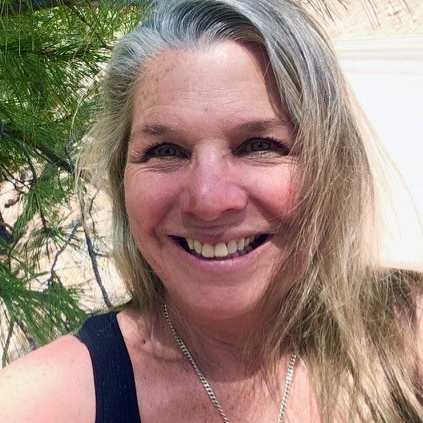
Dr. Michelle Hall Kells is a Professor at the Department of Chicana and Chicano Studies. Kells teaches courses in Chicana/o/x environmentalisms, mujerista activism, and environmental justice as well as ethnolinguistic diversity and linguistic equity education. Kells has published more than forty articles, chapters, and essays focusing on rhetoric and ecology, transcultural literacy, and Cold War Mexican American civil rights activism. Kells’ two single author monographs include Héctor P. García: Everyday Rhetoric and Mexican American Civil Rights (2006) and Vicente Ximenes, LBJ’s Great Society, and Mexican American Civil Rights Rhetoric (2018). Her collaborative publications include a co-edited volume with Laura Gonzales, Latina Leadership: Language and Literacy Education Across Communities (2022) which received the 2023 Outstanding Book Award by the Conference of College Composition and Communications. Kells served as lead editor for Latino/a Discourses: On Language, Identity, and Literacy Education with Valerie Balester and Victor Villanueva (2004) and Attending to the Margin: Writing, Researching and Teaching on the Front Lines (1999). Kells recently completed a new monograph, Rhetoric of Embodiment: Mujerista Activism, Environmental Imagination, and the Mining of the Salt of the Earth (forthcoming Penn State University Press).
CCS 552 Research Methods, CCS 620 Practicum, CCS 593 Borderland Environmentalism, CCS 593 Mujerista Activism, CCS 590 Advanced Seminar in CCS (All courses are Hybrid/Online)
Books: Single Author Monographs
Vicente Ximenes, LBJ's Great Society, and Mexican American Civil Rights Rhetoric. Southern Illinois University Press. January 2018. (332 pps.)
Héctor P. García: Everyday Rhetoric and Mexican American Civil Rights. Southern Illinois University Press. December 2006. (286 pps.)
Books: Co-Edited Volumes
Latina Leadership: Language and Literacy Education across Communities. Co-editor with Laura Gonzales. Syracuse University Press. February 2022. (292 pps). Recipient of CCCC 2023 Outstanding Book Award. https://cccc.ncte.org/cccc/awards/oba
Latino/a Discourses: On Language, Identity, and Literacy Education. Co-editor with Valerie Balester and Victor Villanueva. Heinemann/Boynton-Cook. (2004). (147 pps).
Attending to the Margins: Writing, Researching, and Teaching on the Front Lines. Co-editor with Valerie Balester. Heinemann-Boynton/Cook. (1999). (188 pps).
Salt of the Earth Recovery Project (2018) This project seeks to provide an open space for deliberative democratic practice by constituting (embodied and digital) platforms within the public sphere to support and guide community members as citizen scholars in the process of co-constructing the narrative of the Cold War Mexican American civil rights movement from (1948 to 1968). Our aim is to honor citizen voices and to foreground their perspectives in the work of exercising authorship and practicing civic literacy. The primary outcome of this research is the construction a living (digital) archive in a free, public, and open space for citizen scholars. https://saltoftheearthrecoveryproject.wordpress.com/history-of-the-salt-of-the-earth/
Mi Cultura Cura: Testimonios de la Nueva México Digital Archive Project (2021) My colleague Professor Levi Romero and I co-designed and implemented this project in response to the aftermath of the COVID-19 pandemic and environmental impacts of climate change on heritage communities across the state of New Mexico. This research seeks to promote cultural production to make perceptible the visible and invisible landscapes of loss as a result of the recent COVID-19 pandemic and the growing impacts of human-caused climate change. Our project examines these threats to heritage New Mexico populations by giving witness to the health, economic, cultural, social, and educational impacts of COVID-19 and climate change on local communities. https://www.miculturacura.org/
Ancestral Gila Wilderness Centennial Project (2024) Public Rhetorics and Colonized Representations of Indigenous Peoples of the Gila Wilderness Bioregion. This research addresses the problem of historical and rhetorical erasure of ancestral Indigenous kinship ties and land sovereignty in the Gila Wilderness bioregion. My goal for this research is to generate co-constitutive discourses about the Gila Wilderness that foreground Indigenous voices and perspectives of belonging. This research aligns with the tribal leadership and elders of the Chihene Nd’e and Chiricahua Apache nations as well as ancestral Puebloan peoples to foreground Indigenous experiences, cultural knowledge, land heritage, kinship ties, and relationships to the sacred places and beings in the Gila Wilderness as an indigenous homeland. The Ancestral Gila Events served over 700 participants. https://gilawildernesscentennial.wordpress.com

